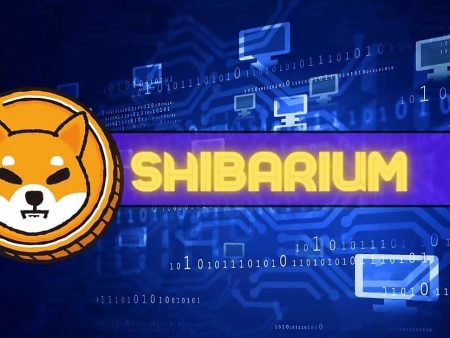Decentralized exchanges (DEX) is one of the prominent concepts in the DeFi field, which is increasingly attracting the attention of investors and users in the cryptocurrency community.
DEX not only changes the way digital assets are traded but also brings many outstanding benefits that CEX exchanges can’t provide. Follow this article of AZCoin to learn about DEX as well as list the top 5 most potential decentralized exchanges today.
What are decentralized exchanges (DEX)?
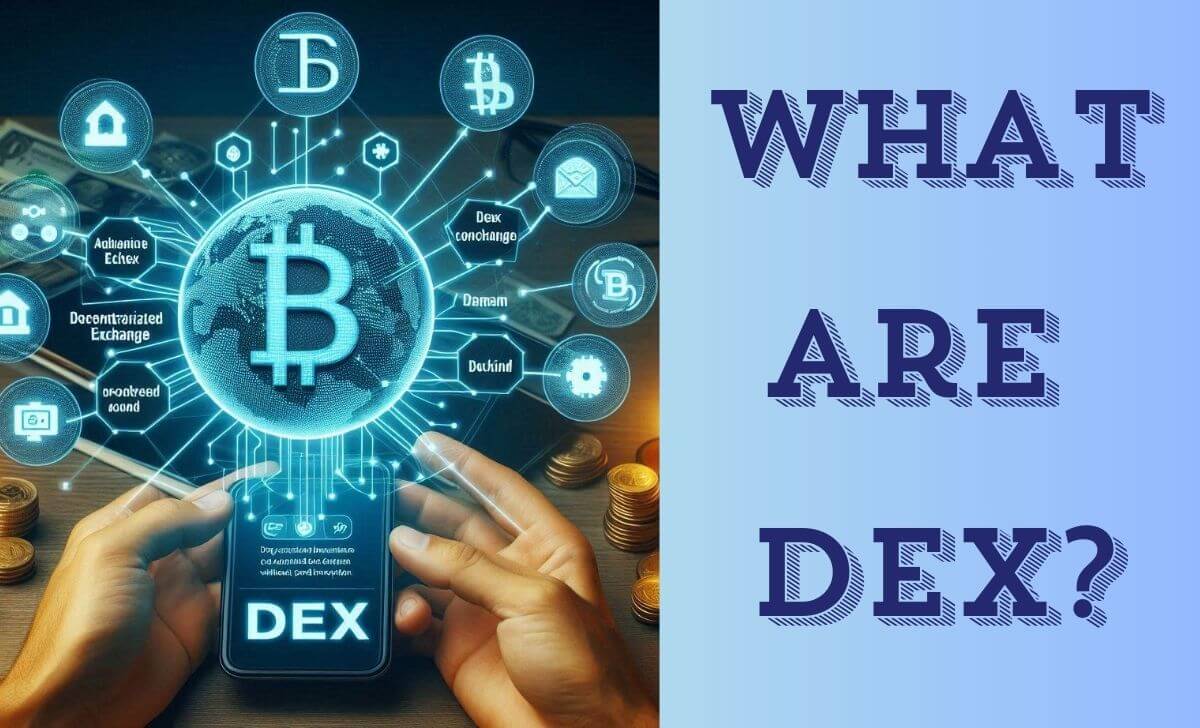
Decentralized exchanges (DEX) are defined as cryptocurrency exchanges that operate on blockchain technology, allowing users to make transactions directly with each other without going through a middleman. This means that users retain complete control over their assets, avoiding the risks associated with depositing funds into an exchange wallet.
How DEX works
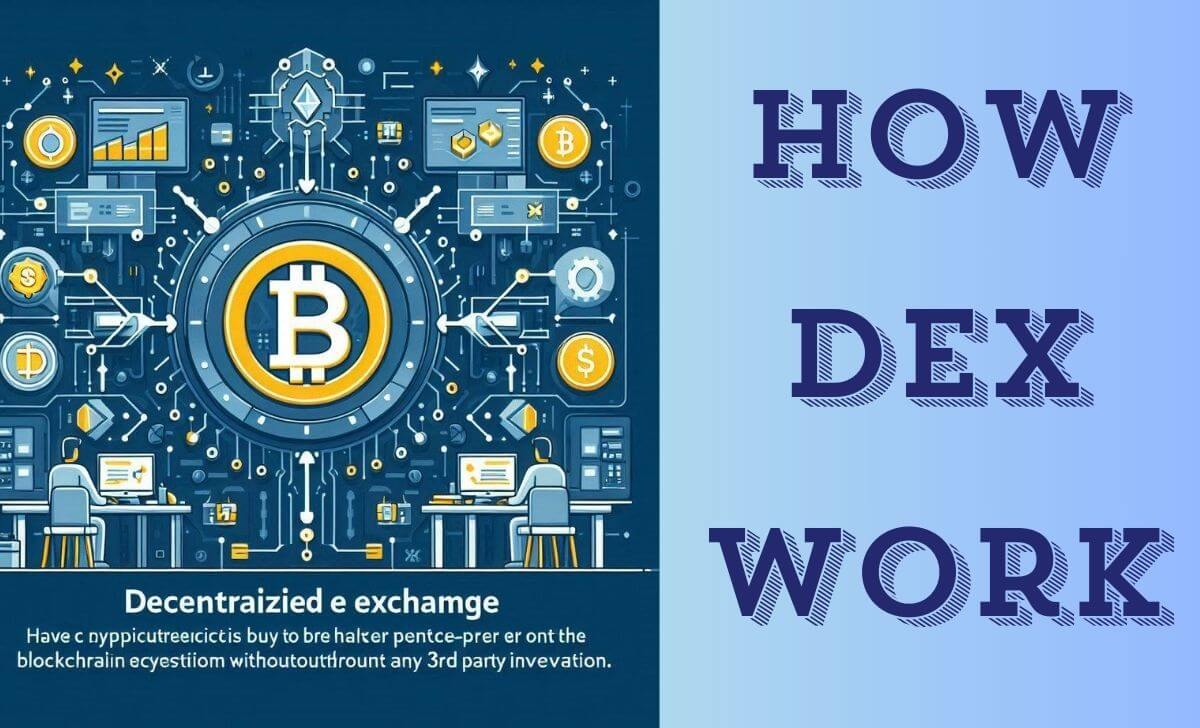
Decentralized exchanges (DEX) operate through smart contracts on the blockchain, which is completely different from centralized exchanges.
On decentralized exchanges, users retain ownership of their assets through personal wallets and private keys, without having to transfer funds to the exchange’s wallet. When making a transaction, users create a buy or sell order and post it on the blockchain network. The transaction will be executed when someone else accepts the price conditions they set.
DEX often uses liquidity pools, where investors lock up assets in exchange for rewards, and set prices based on algorithms, instead of order books like on CEX. All transactions are settled directly on the blockchain, providing high transparency and security.
The hottest NFTs today are of interest to many people, you can refer to: Rizz Monkey coin
Advantages and disadvantages of decentralized exchanges
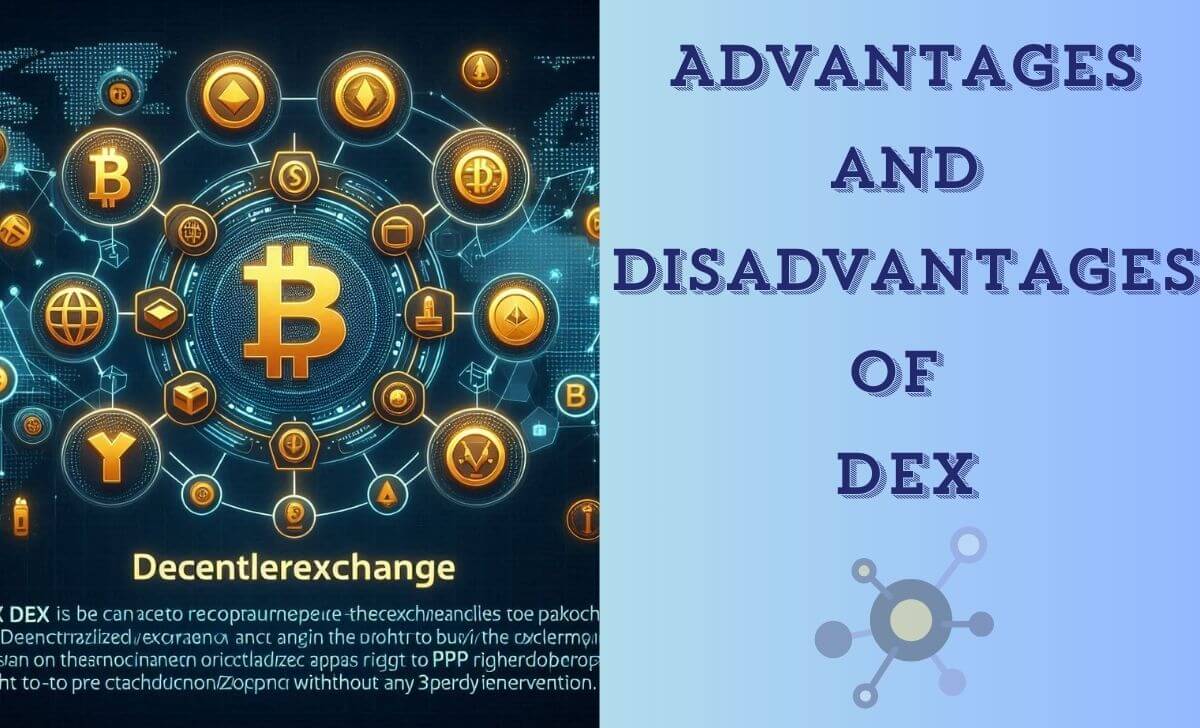
Advantages
- Higher security: Decentralized exchanges doesn’t store user assets on the exchange, reducing the risk of attacks and theft compared to centralized exchanges.
- Asset control: Users have complete control over their assets, as transactions are made directly from personal wallet to personal wallet via smart contracts.
- 24/7 trading: DEX operate continuously without being affected by business hours or maintenance issues, allowing users to trade at any time
- Identity security: Personal information is not required to make transactions, helping to protect user privacy.
- Transparency: All transactions are recorded on the blockchain, ensuring transparency and immutability.
- Support for a wide range of assets: DEX often supports a wide range of cryptocurrencies and tokens, including new and unlisted tokens on centralized exchanges.
Disadvantages
- Low liquidity: Some DEX may struggle to provide enough liquidity for large trades, which can lead to slippage when executing trades.
- Difficulty of use: DEX interfaces and processes can be more complex than centralized exchanges, which can be difficult for new users.
- Smart contract risks: Bugs or vulnerabilities in smart contracts can put users’ transactions and assets at risk.
- Slower transaction speeds: Due to the way transactions are processed on the blockchain, some DEX may experience longer wait times than centralized exchanges.
- Limited scalability: Some DEX may struggle to handle large trading volumes due to the scalability limitations of the current blockchain.
Top 5 potential DEX today
Below are the 5 most prominent and potential DEX exchanges today, highly appreciated for their features, performance and popularity.
Uniswap
One of the most prominent decentralized exchanges on the Ethereum network. Uniswap v3, launched in 2021, introduces a Concentrated Liquidity mechanism that allows liquidity providers to choose a specific price range to provide liquidity. With a daily trading volume exceeding $1 billion, Uniswap v3 continues to maintain its leadership in the DeFi space thanks to its high liquidity and user-friendly interface.
SushiSwap
Launched in 2020, it is a fork of Uniswap but has added many new features and improvements. It operates on multiple blockchains including Ethereum and BSC.
SushiSwap stands out with its SushiBar program, which allows users to stake SUSHI tokens to receive additional rewards. In addition, the exchange also offers borrowing and lending services via Kashi. SushiSwap has a strong community and multi-chain features, giving users access to many trading and investment opportunities.
PancakeSwap
PancakeSwap was launched in 2020, operating primarily on BSC and featuring low transaction fees and fast processing speeds. It offers services such as swapping, staking, and yield farming, with attractive rewards for users. The platform utilizes Proof of Stake (PoS) mechanisms to ensure transaction security and efficiency. Its efficiency and cost-effectiveness make it a popular choice among DeFi enthusiasts.
Curve Finance
Curve Finance launched in 2020 on Ethereum, focusing on swapping stablecoins and similar assets with low slippage.
Curve uses an automated market maker (AMM) mechanism optimized for stablecoin pairs, minimizing price volatility and transaction costs. The exchange is known for its ability to provide good prices for stablecoin trades and is widely used in the DeFi community for low-cost transactions.
1inch
1inch, which has been operating since 2019, is a prominent DEX aggregator that searches and optimizes prices from multiple decentralized exchanges. Instead of being a single DEX, 1inch provides token exchanges with the best prices by splitting orders across multiple exchanges. For more on innovative platforms, see AZcoin – best crypto exchange 2024.
Difference between DEX and CEX
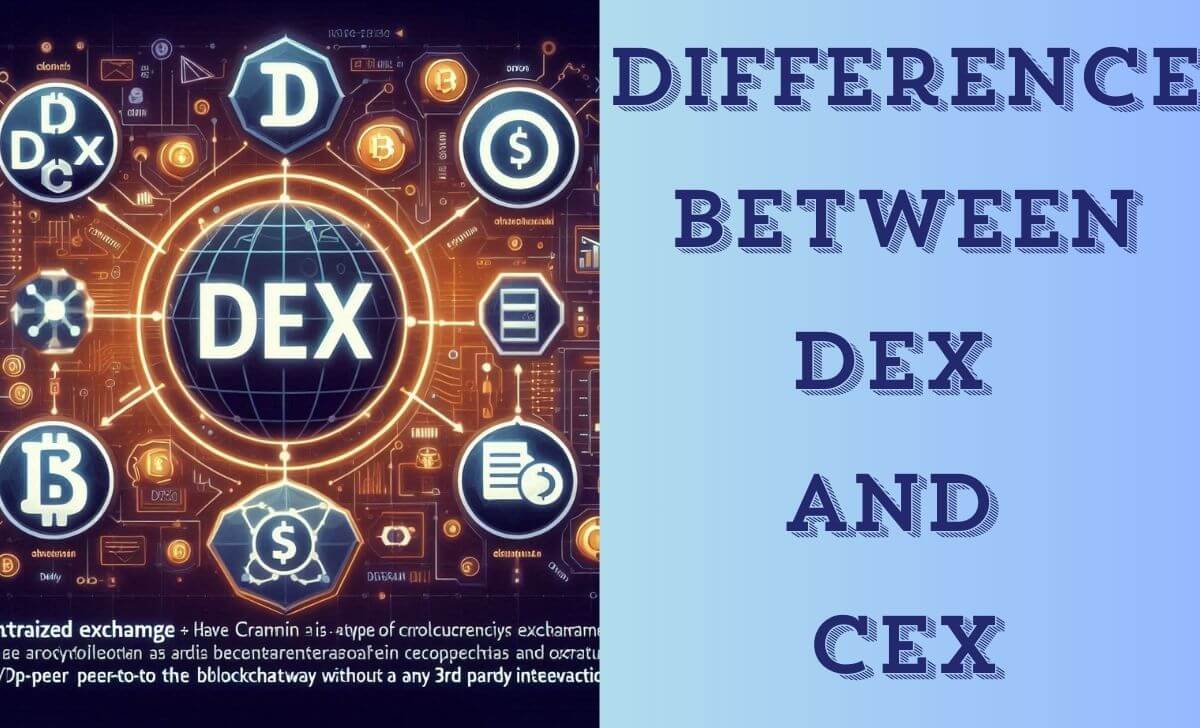
The main difference between a decentralized exchange (DEX) and a centralized exchange (CEX) lies in how transactions are managed and processed.
A CEX, like Binance or Coinbase, acts as an intermediary where users deposit funds into the exchange’s wallet. The exchange stores and manages the user’s assets, and executes buy and sell orders through its internal system.
In contrast, a DEX, like Uniswap or SushiSwap, doesn’t store the user’s assets. Instead, users retain full ownership of their assets through their personal wallets and execute trades directly on the blockchain.
A DEX is powered by smart contracts, allowing for automated trading without the need for an intermediary. This offers security and control, but can come with higher transaction costs and less liquidity than a CEX.
Conclusion
Hopefully, the information that AZcoin introduced above can provide an overview of DEX and help you make informed decisions when participating in the digital asset market. Whether you are an experienced investor or a beginner, learning carefully about DEX before trading is essential to protect your interests and assets.

I’m Jessi Lee, currently living in Singapore. I am currently working as a trader for AZCoin company, with 5 years of experience in the cryptocurrency market, I hope to bring you useful information and knowledge about virtual currency investment.
Email: [email protected]

